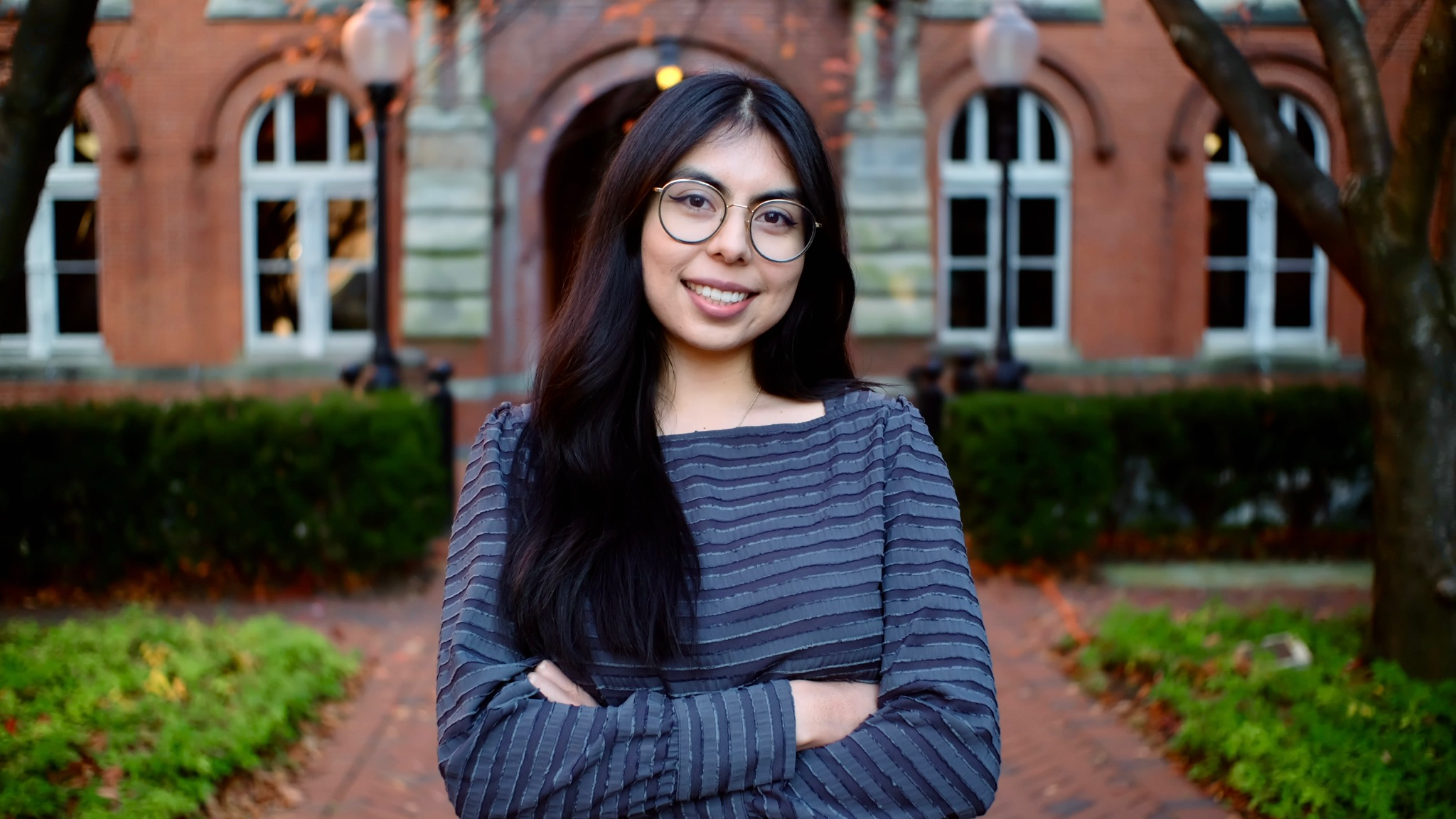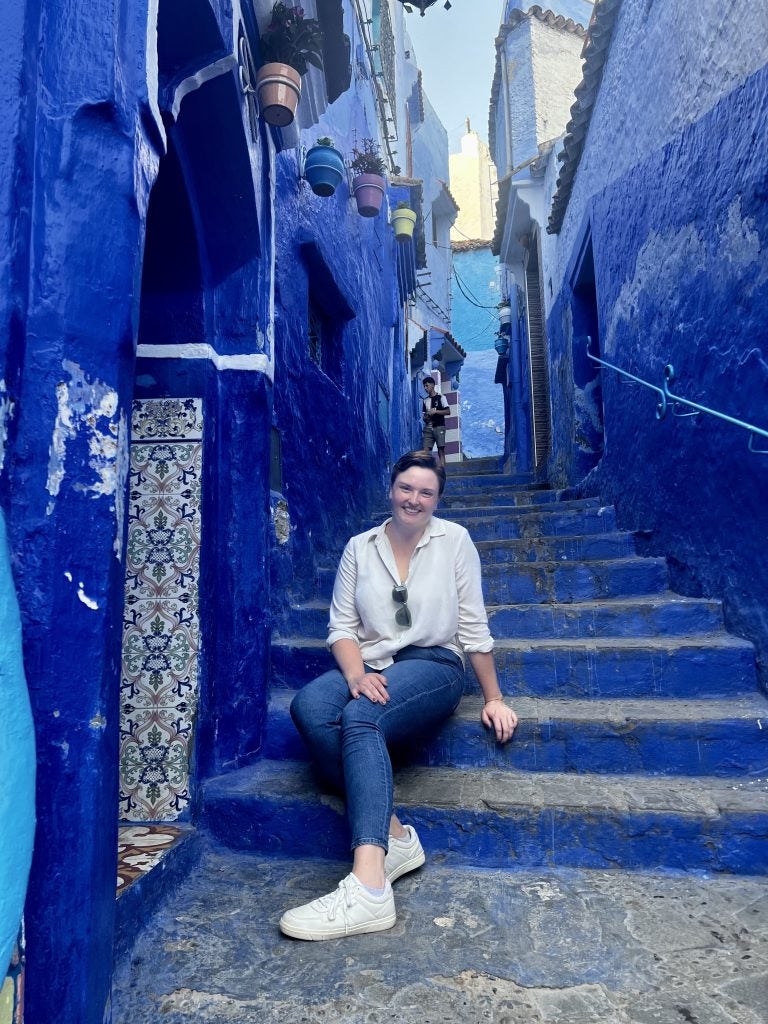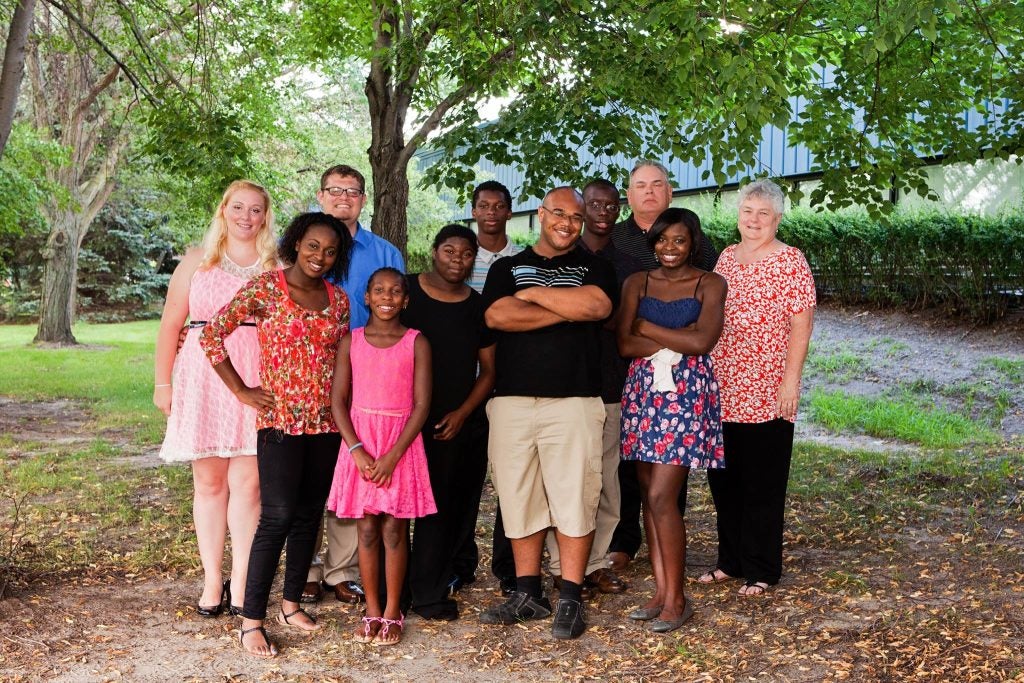How this first-gen student found a passion for impact-driven policymaking
Inspired by her experiences living and working in Mexico and South America, soon-to-be-graduate Diana Rivas Garcia (MIDP’24) aspires to empower communities through development policy.
In September 2021, Diana Rivas Garcia (MIDP’24) embarked on her Fulbright journey in the city of Teziutlán, Mexico, located 500 kilometers from her hometown of Senguio. Having resided in Portland, Oregon, for more than a decade, Rivas Garcia made a significant move back to her birth country.
For the next nine months, she taught English at an engineering college and conducted field research on the local informal economy and its entrepreneurs. Her drive to embark on this research project originated from her upbringing in a hard-working, entrepreneurial family.
Rivas Garcia was provided an opportunity to combine her interests in development, economics and international relations — subjects she studied as an undergraduate at Lehigh University — and to share her learnings with community members.
“Despite my initial assumptions about limited financial literacy or access to credit, I discovered that individuals’ participation in the informal economy wasn’t necessarily a need-based strategy,” said Rivas Garcia. “Instead, I found that people were drawn in because they wanted to be their own boss or were inspired by others in the community who also owned their businesses.”
Rivas Garcia credits her experience as a Fulbright Grantee with helping her understand the importance of context and engagement with vulnerable communities. “Now, instead of just looking at data, I also try to relate what I’m learning back to peoples’ stories and envision how policies will impact their lives,” she said.
Called to be a Hoya
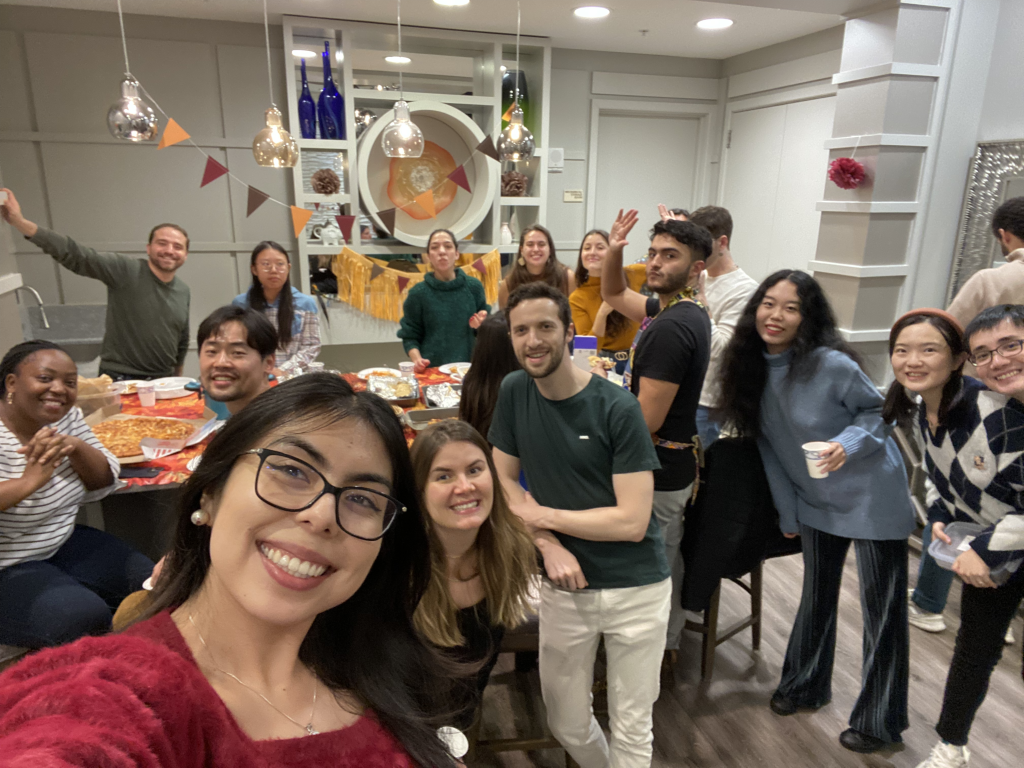
Diana Rivas Garcia (MIDP’24) and her peers hosted a Thanksgiving dinner in Washington, DC.
Only three short months after completing her time in Mexico, Rivas Garcia enrolled in the McCourt School of Public Policy’s Master of International Development Policy (MIDP) program, citing its quantitative rigor and location in Washington, DC, as deciding factors in her decision to be a Hoya.
“I applied to several universities within and outside of the United States,” she said. “I followed my gut in choosing Georgetown.”
Rivas Garcia is the first in her family to earn an undergraduate or graduate degree and left a burgeoning career in finance behind to pursue a postgraduate education.
I have loved my experience in the MIDP program and my cohort. I feel so lucky to be at the McCourt School.
Diana Rivas Garcia (MIDP’24)
Over the last two years, she has made meaningful contributions to the McCourt community, serving as a leadership fellow and representing her peers as a first-year representative and the MIDP program as a member of the McCourt Student Association (MSA). She has also served as a teaching assistant (TA) for Franck Wiebe , professor of the practice and MIDP faculty director, and Professor Jishnu Das , supporting students inside and outside of the classroom as they navigate the peaks and valleys of graduate school.
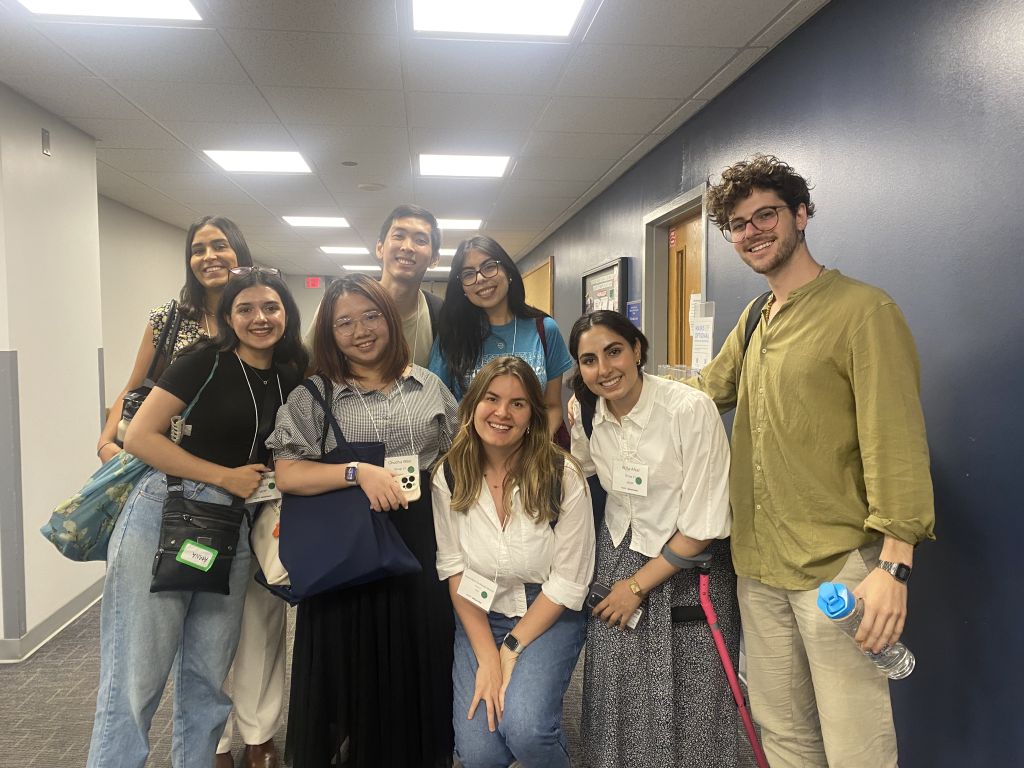
As part of the McCourt Leadership Fellows program, Diana Rivas Garcia (MIDP’24) helped mentor incoming students during new student orientation.
“I have really enjoyed my role as a mentor,” said Rivas Garcia. “I am always trying to find ways to encourage and motivate first-year students and calm them down when times are stressful. I know I needed that during my first year.”
In June 2023, Rivas Garcia traveled to Bogota, Colombia, to complete the MIDP Summer Experience with Econometría Consultores, a consulting company specializing in the analysis of economic and social projects. During her internship, Rivas Garcia helped her team evaluate the effects of an education program by UNICEF in Honduras and design an internationalization strategy for Bogota’s Secretary of Economic Development.
“I enjoyed my internship and the opportunity I had to experience life as a working professional in a community where I had never engaged before,” she said. “It was a completely different cultural experience and a very positive and inspiring environment.”
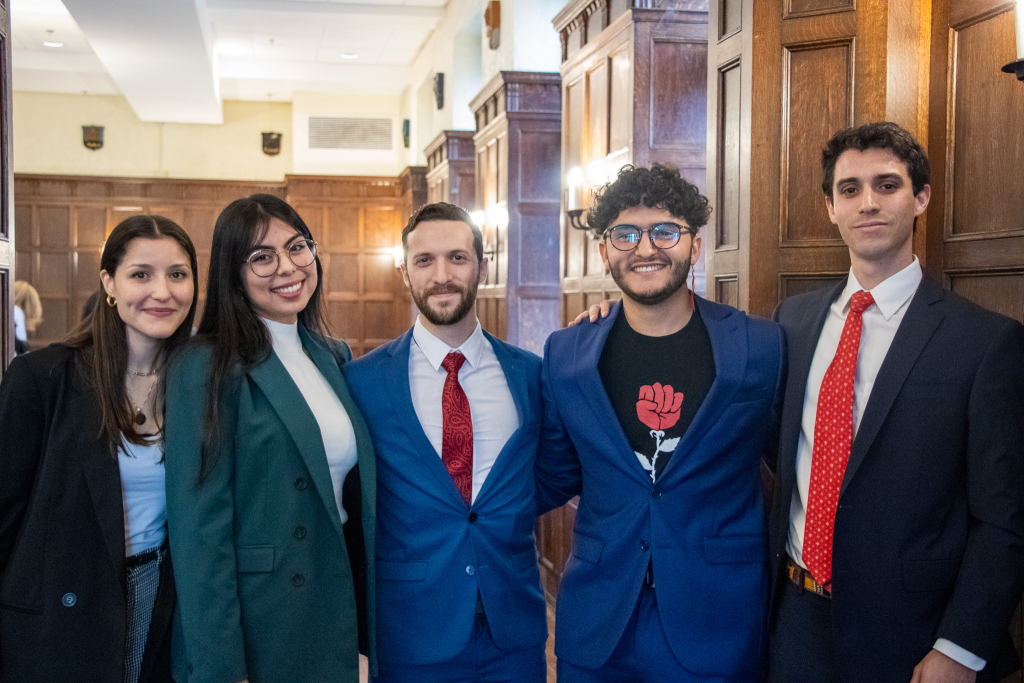
Cristina Pirela (MIDP’24), Diana Rivas Garcia (MIDP’24), Thomas Tiberghien Alvarez (MIDP’24), Santiago Rodriguez (MIDP’24) and Antonio Ortiz-Mena (MIDP’24) were selected as finalists in the 2023 Georgetown Public Policy Challenge for their proposal to provide basic medical checkups to undocumented migrants in the DC area.
As a soon-to-be-graduate, Rivas Garcia is planning her next steps. While she doesn’t have a dream job in mind, she aspires to empower communities through development policy and intends to stay in Washington, DC.
“Through the MIDP program, I know what productive, positive policymaking looks like and how to evaluate programs to drive impact,” she said. “In my future work, I hope to replicate that and promote the well-being of individuals and their communities.”
This story is a part of the McCourt School’s Student Spotlight series , which showcases inspiring stories about emerging policy leaders who are making an impact in their academic pursuits, extracurricular activities and communities.
